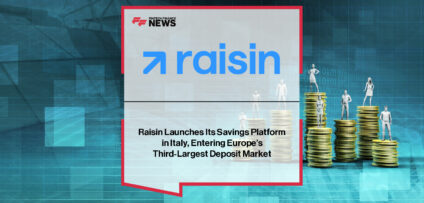Breaking News

Customers Stand to Gain the Most Benefits from Investment in Payments Infrastructure According to Banks and Building Societies
60% of UK banks and building societies believe that their retail customers will benefit the most from investment in their payments infrastructure, according to a survey of UK financial institutions conducted by KPMG UK as part of its Payments Modernisation Report published today*.
Payments modernisation sees organisations find new ways to keep up with customer demands, regulatory changes, and advancements in payments technology to speed up payments and provide a more seamless experience.
Enhanced security and fraud mitigation are two of the main benefits which banks says are expected from investing in and modernising their payments infrastructure. In 2022, the Payment Systems Regulator revealed that £485.2 million was lost to authorised push payment (APP) scams alone, prompting it to introduce new reimbursement requirements.
The pace of transformation in the payments sector and the corresponding impact on financial institutions has significantly evolved over the last few years. Customers of all shapes and sizes are increasingly demanding payment capabilities that are more efficient,
faster, less costly, and offer greater resilience and security. In addition, regulatory change and technology advances in areas such as cloud computing, both add to the pressure on financial institutions to invest in their payments offering or risk being left behind by competitors who are.
Customers are the main drivers behind banks investing in their payments systems
69% of banks said their payments modernisation programmes reflect the reality that customer expectations are changing. Customers expect an improved digital experience, better security and protection from fraud, and the ability to track payments. As technology continues to evolve and consumer behaviour changes, organisations will increasingly be expected to provide a digital experience that offers faster payments and greater security.
Peter Harmston, Partner and Head of Payments Consulting at KPMG UK said: “Customers should be central to why organisations embark on modernising their payments architecture. This is both to meet changing customer expectations, but also to deliver enhanced benefits such as increased security and better fraud mitigation.”
“The payments sector has experienced a relentless pace of change over the last few years which will likely slow down in the future. Banks must keep up to date with the latest technology to enable processes to be streamlined and further improve customer experiences.”
Payments modernisation is happening at pace but not consistently across the industry
84% of the banks and building societies surveyed had a payments modernisation programme underway or had plans to launch one, with 82% of those planning to launch one expecting to do so in the next year. However, the pace of change varies across the banking industry with not a single wholesale bank surveyed currently undertaking modernisation; and none having done so over the past six months.
That said, 80% of wholesale banks are planning to initiate a payments modernisation programme, including 60% within the next 12 months. The average planned expenditure by wholesale banks in this area is £40 million.
While wholesale banks are planning on embarking large scale modernisation, only 50% of challenger banks are planning such change. This reflects the advantage these institutions enjoy in having relatively new payments technology, sitting on modern infrastructure that they were able to design from scratch at launch. They don’t have the burden of having to deal with legacy systems.
Peter added: “Modernising payments architecture is challenging as every bank is different. It requires complex technical updates, often to legacy systems already patched and spliced together. Maintaining security and resilience is paramount and there is no single approach to modernisation that guarantees to deliver.”
“Banks are racing to offer the solutions their customers want now. On the wholesale side, progress has so far been slower, often due to the sheer scale and complexity of operation, and there is significant work to do.”
“The Treasury’s Future of Payments Review released earlier this month will have been welcomed by many in the banking sector as an opportunity to have their say on what the future of payments should look like. A coherent and coordinated roadmap for UK Payments can ensure the country remains at the forefront of innovation in the future.”
The average survey respondent has allocated £27 million to their modernisation programme; across the banks and building societies in this research, that equates to a total spend of £891 million – and extrapolated across the whole UK banking industry, spending on payments modernisation could run into billions of pounds.
People In This Post
Companies In This Post
- BirdsEyeView Launches ‘AI Data Scrubbing’ for Large-Scale Hazard Modelling Read more
- CIBC Innovation Banking Provides Growth Capital to Gradient AI Read more
- ACI Worldwide Launches Card Payments on Cloud-Native ACI Connetic, Advancing Unified Payments Platform Read more
- Raisin Launches Its Savings Platform in Italy, Entering Europe’s Third-Largest Deposit Market Read more
- Standard Chartered Appoints Naveen Mallela as Global Head of Payments Read more











